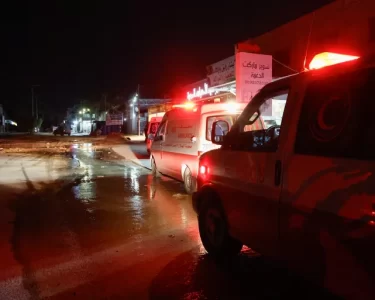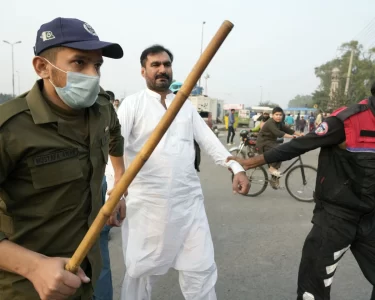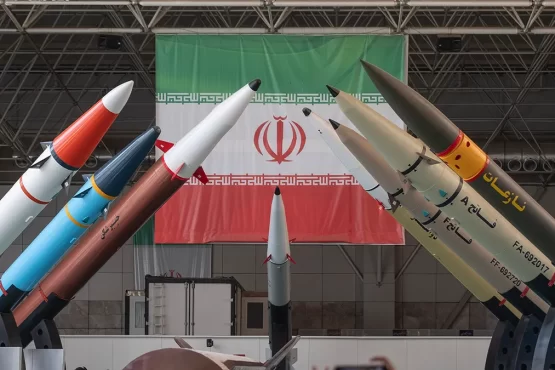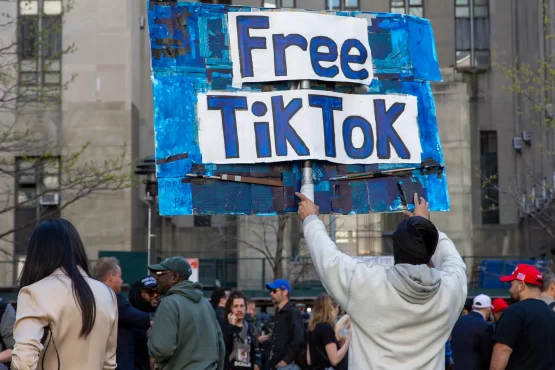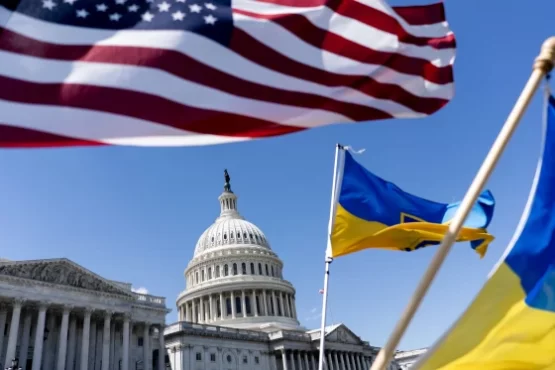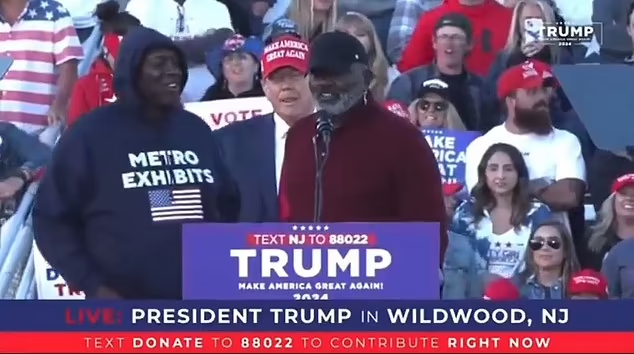In a significant development in the New York hush money criminal trial, Donald Trump’s lawyers rested their defense on Tuesday without the former president taking the witness stand. The move brings the case closer to the moment when the jury will begin deliberating on Trump’s fate.
“Your honor, the defense rests,” Trump’s lawyer, Todd Blanche, informed the judge following testimony from a former federal prosecutor called to challenge the credibility of the prosecution’s key witness. The jury was sent home for a week until May 28, when closing arguments are expected to take place. However, the attorneys planned to return later Tuesday to discuss how the judge will instruct jurors on deliberations.
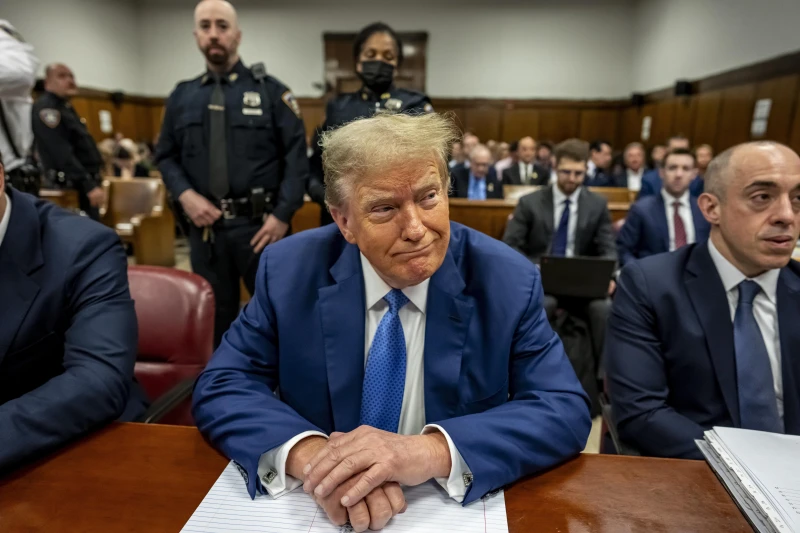
Trump, the first former American president to face criminal charges, did not stop to speak as he left the courthouse and ignored a question about why he chose not to testify. Previously, the Republican had expressed his desire to take the witness stand to defend himself against what he claims are politically motivated charges.
Outside the courthouse, Trump’s son, Donald Trump Jr., defended his father’s decision not to testify during a news conference with supporters. “There’d be absolutely no reason, no justification to do that whatsoever. Everyone sees it for the sham that it is,” the younger Trump said.
After more than four weeks of testimony, jurors could begin deliberating as early as next week to determine whether the former president is guilty of 34 felony counts of falsifying business records.
Judge Juan M. Merchan informed jurors that the court session could run late next Tuesday to accommodate both prosecution and defense closing arguments, which will be the last time the jury will hear from either side. Merchan expects his instructions on deliberations to take about an hour, after which the jury can begin discussing the case, possibly as early as next Wednesday, May 29. Until now, jurors have been instructed not to discuss the case with anyone outside court or among themselves.
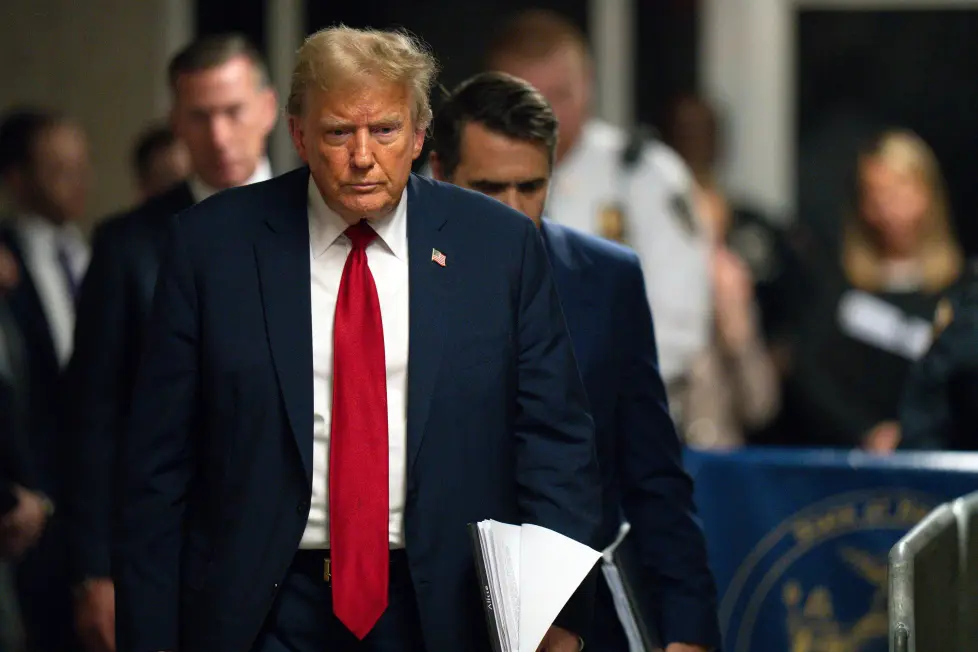
Prosecutors have accused Trump of a scheme to bury negative stories to fend off damage to his 2016 presidential campaign against Democrat Hillary Clinton and then falsifying internal business records to cover it up. Trump has pleaded not guilty and denied any wrongdoing in the case.
The charges stem from internal Trump Organization records in which payments to Michael Cohen, Trump’s former fixer-turned-foe, were marked as legal expenses. Prosecutors say these payments were actually reimbursements for a $130,000 hush money payment to porn actor Stormy Daniels to keep her from going public before the 2016 election with claims of a sexual encounter with Trump. Trump maintains that nothing sexual happened between them.
The final witness called by the defense was Robert Costello, in an effort to undermine Cohen’s credibility. Prosecutor Susan Hoffinger showed Costello an August 2018 email in which Cohen told him and one of his partners to stop contacting him because “you do not and never have represented me” and another lawyer did. Costello admitted he was upset that Cohen hadn’t paid him and volunteered that he had replied to the message in an email that prosecutors didn’t show.
Prosecutors have said that they want to demonstrate that Costello was part of a pressure campaign to keep Cohen in Trump’s corner once the then-attorney came under federal investigation. Hoffinger asked Costello about a 2018 email in which he assured Cohen that he was “loved” by Trump’s camp, “they are in our corner,” and “you have friends in high places.” When asked who those “friends in high places” were, Costello said he was referring to Trump, who was then the president.
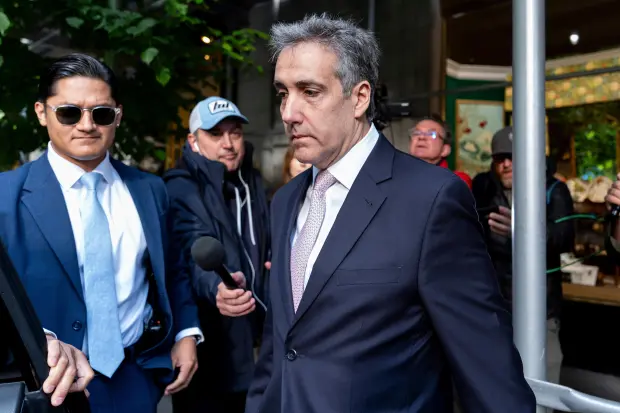
Costello bristled as he insisted he did not feel animosity toward Cohen and did not try to intimidate him. “Ridiculous. No,” he said to the latter.
Trump’s attorneys had hoped Costello would cast doubt on Cohen’s testimony, given their professional relationship that had splintered in a spectacular fashion. Costello had offered to represent Cohen soon after the lawyer’s hotel room, office, and home were raided and as Cohen faced a decision about whether to remain defiant in the face of a criminal investigation or to cooperate with authorities in hopes of securing more lenient treatment.
Costello has repeatedly maligned Cohen’s credibility and was even a witness before last year’s grand jury that indicted Trump, offering testimony designed to undermine Cohen’s account. In a Fox News Channel interview last week, Costello accused Cohen of lying to the jury and using the case to “monetize” himself.
Costello contradicted Cohen’s testimony describing Trump as intimately involved in all aspects of the hush money scheme. Costello told jurors Monday that Cohen told him Trump “knew nothing” about the hush money payment to Daniels.
“Michael Cohen said numerous times that President Trump knew nothing about those payments, that he did this on his own, and he repeated that numerous times,” Costello testified.
However, Cohen testified earlier Monday that he had “no doubt” that Trump gave him a final sign-off to make the payments to Daniels. In total, he said he spoke with Trump more than 20 times about the matter in October 2016.

After jurors left for the day Monday, defense attorneys pressed the judge to throw out the charges before jurors even begin deliberating, arguing prosecutors have failed to prove their case. The defense has suggested that Trump was trying to protect his family, not his campaign, by squelching what he says were false, scurrilous claims.
Defense attorney Todd Blanche argued that there was nothing illegal about soliciting a tabloid’s help to run positive stories about Trump, run negative stories about his opponents, and identify potentially damaging stories before they were published. No one involved “had any criminal intent,” Blanche said.
“How is keeping a false story from the voters criminal?” Blanche asked.
Prosecutor Matthew Colangelo shot back that “the trial evidence overwhelmingly supports each element” of the alleged offenses and said the case should proceed to the jury.
The judge did not immediately rule on the defense’s request, which is often made in criminal cases but rarely granted.
As the trial nears its end, all eyes are on the jury and the decision they will make regarding the former president’s fate. The outcome of this historic trial could have significant implications for Donald Trump’s political future and the broader American political landscape.



